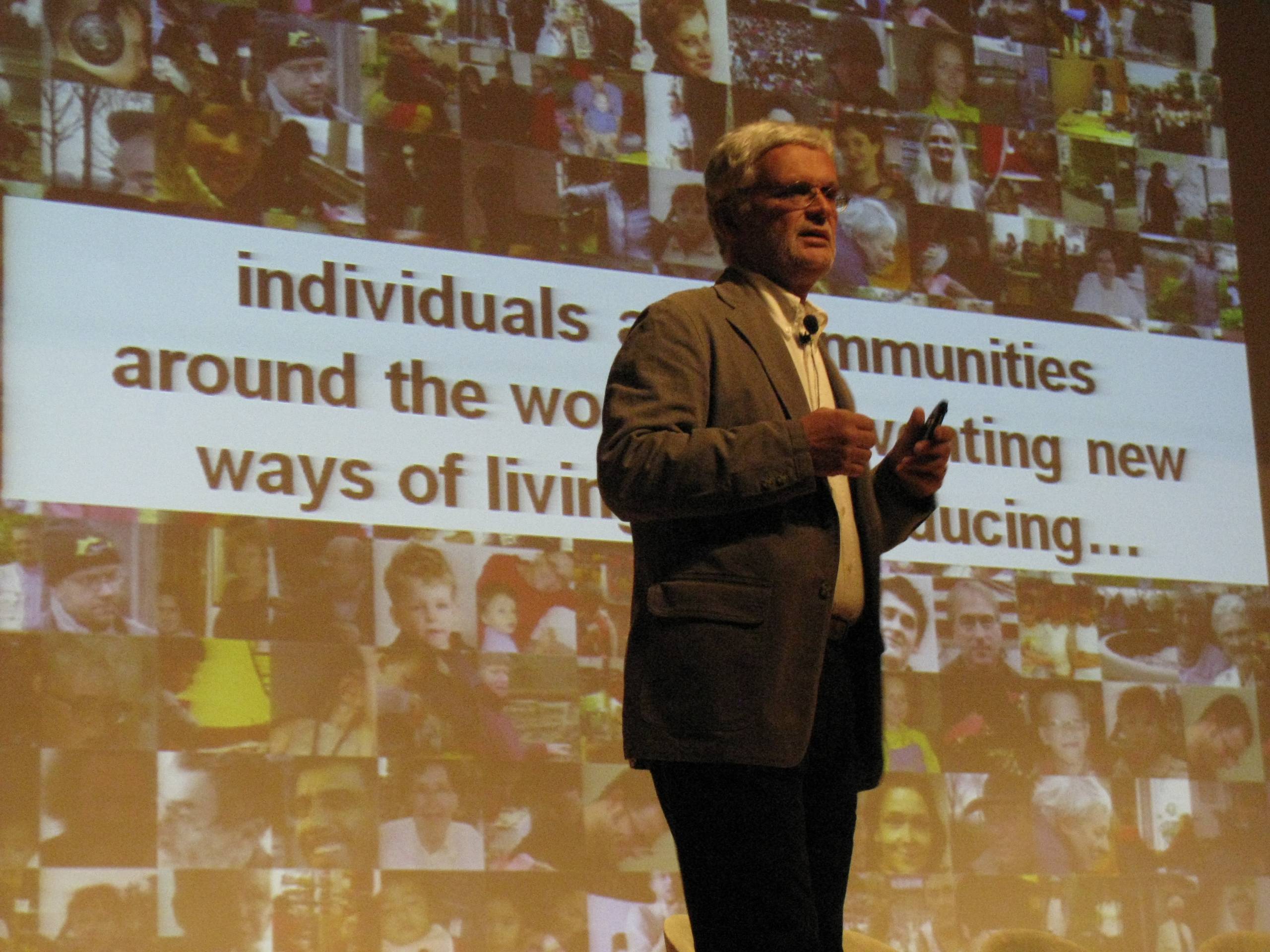
Earlier this year Edgeryders initiated an unusual collaboration with Ezio Manzini, a leading thinker in design for sustainability. The ways Edgeryders work and live today offer many insights into the futures of design for social change in a connected world in transition toward sustainability. The world we inhabit is one in which everybody constantly has to design and redesign their existence, whether they wish to or not. It is also a world in which many of these individual and collective projects are starting to converge and give rise to wider social changes. What is the role of design experts in such a world in which everybody designs? This is the subject of Ezio’s new book, hot off the MIT Press.
On Friday May 8 at 19:00 Ezio Manzini will do a short talk introducing design for social innovation, “the most dynamic field of action for both expert and non-expert designers in the coming decades”. We will also explore how some of the principles presented by Ezio are being implemented in experimental new initiatives that achieve strategic objectives and capture the public imagination.
The presentation will take place in our new homebase in Brussels in the context of an informal dinner where we enjoy a nice, relaxed evening with old and new friends.
Hosts: Nadia EL-Imam, Alberto Cottica and you?
When: 19:00, Friday 8/5
Where: Brussels. Exact location is sent to registered participants.
Price: 26 Euros/person (Cost of food and drink- usually we cook ourselves but since we are in the middle of a move, we are ordering catering this time).
RSVP by 22/4: Please write to nadia@edgeryders.eu to let us know if you wish to join us and wait for written confirmation. It is not ok to just show up at this event without registration as number of spaces is limited to 16 and we need to plan food etc.
Date: 2015-05-08 17:00:00 - 2015-05-08 20:00:00, Europe/Brussels Time.